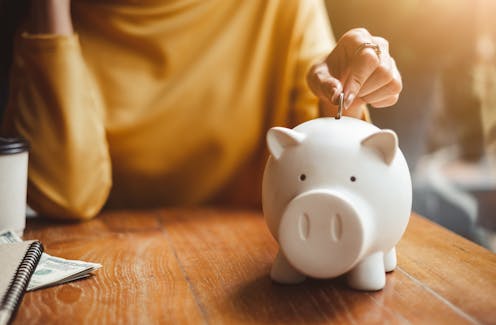Americans’ personal savings rate is near an all-time low – an economist explains what it means as a potential recession looms
- Written by Arabinda Basistha, Associate Professor of Economics, West Virginia University
 Is Americans' low savings rate a problem?Maneerat/EyeEm via Getty Images
Is Americans' low savings rate a problem?Maneerat/EyeEm via Getty ImagesThe rate at which Americans are saving money has dipped close to an all-time low, according to the Bureau of Economic Analysis. The personal savings rate was 2.3% as of October, down from 7.3% a year earlier. It’s the lowest since July 2005, when the rate hit a record...

